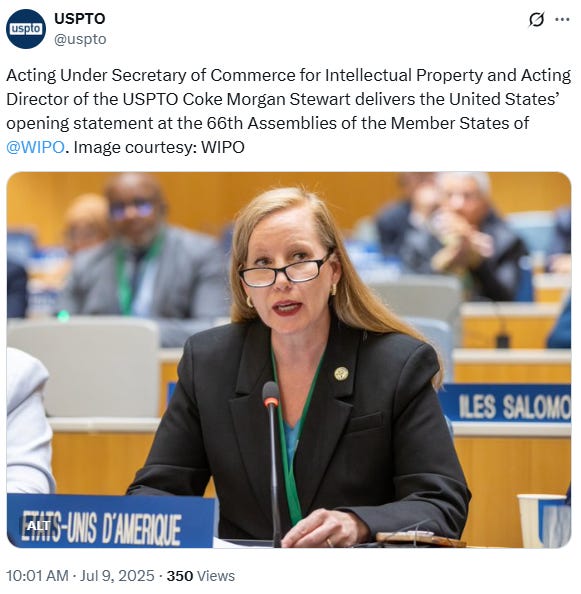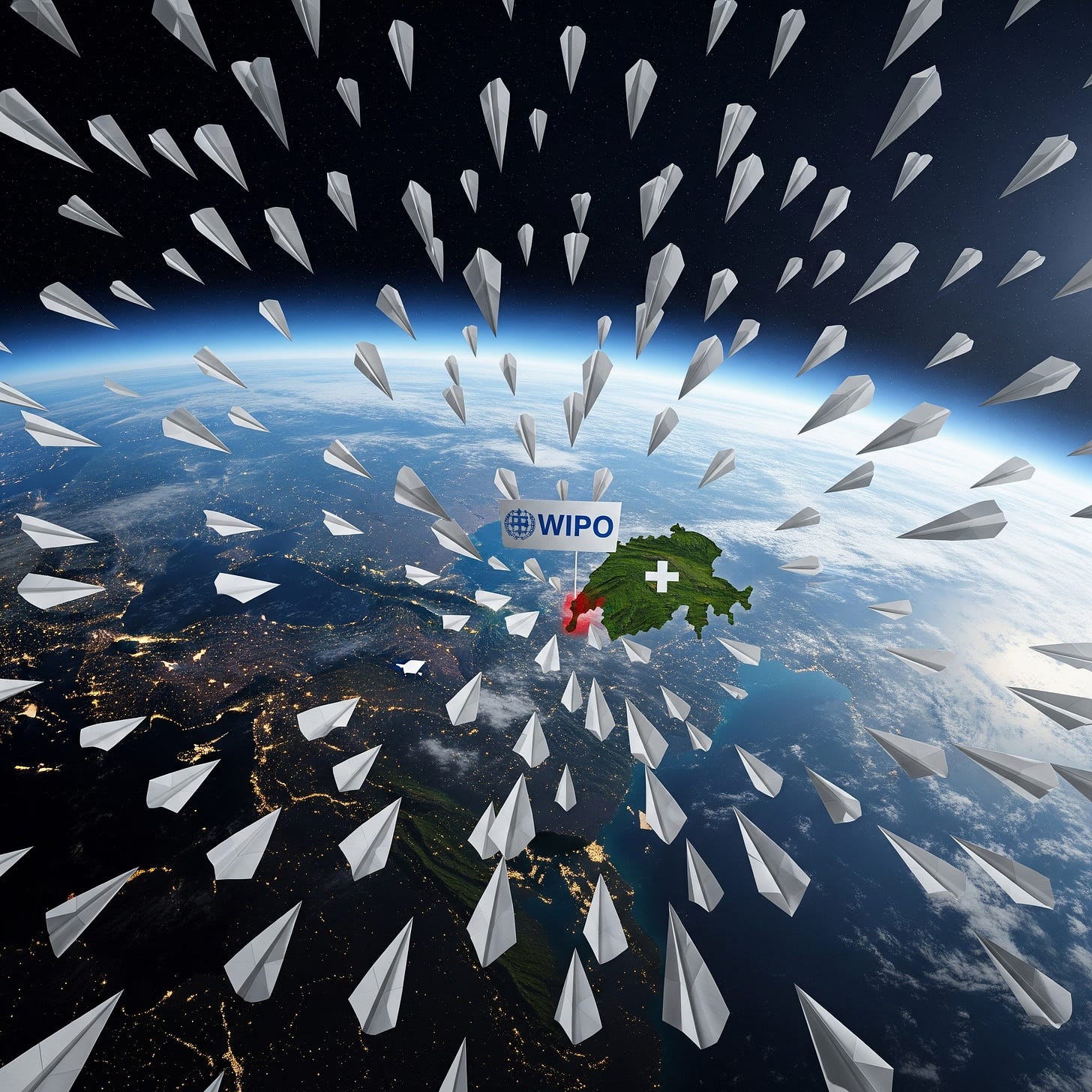U.S. Signals Priorities at WIPO Assemblies: A Focus on Core Mission and Financial Prudence
Acting Director Stewart preached consistency and financial self-sufficiency
At the 66th Assemblies of the Member States of the World Intellectual Property Organization (WIPO) in Geneva, the United States outlined a clear and focused vision for the organization's future. Acting Under Secretary of Commerce for Intellectual Property and Acting Director of the USPTO, Coke Morgan Stewart, delivered an opening U.S. statement that emphasized adherence to WIPO's foundational mission, operational efficiency, and fiscal responsibility. The brief remarks (reproduced below) provide insight into the U.S. position on key issues facing the global intellectual property community.
A central theme of the U.S. statement was the reaffirmation of WIPO's primary mandate: to promote the protection of intellectual property worldwide. The statement identified the international filing and registration services, such as the Patent Cooperation Treaty (PCT) and the Madrid System for trademarks, as the "backbone" of the organization.
For the many practitioners and companies that rely on these systems, the call to continuously improve and streamline them for greater cost-efficiency and simplicity is a welcome objective.
One of the most specific policy points addressed the ongoing debate surrounding new disclosure requirements within the PCT system. Acting Director Stewart stated the U.S. position that the PCT should not be expanded to include requirements for the disclosure of traditional knowledge and genetic resources.
The argument presented is that such requirements are not related to the patentability of inventions and would constitute an unnecessary burden on applicants. This position signals a resistance to proposals that, from the U.S. perspective, could complicate the patent application process and deviate from the system's intended function.

The statement also brought matters of financial governance to the forefront. A significant point was made regarding the financial self-sufficiency of WIPO's various registration systems.
The U.S. expressed concern over the practice of using fees from financially solvent systems, namely the PCT and Madrid, to support other systems that are not moving toward financial sustainability. The Lisbon system for the registration of geographical indications was specifically mentioned as a beneficiary of this cross-subsidization.
The U.S. position advocates for a model where each system operates on a self-sustaining financial basis, arguing against the continued burden on patent and trademark filers to fund other organizational activities.
Ultimately, the U.S. statement connects the effective administration of IP rights to broader economic prosperity for all nations. By focusing on a clear, mission-driven agenda, the U.S. seeks to ensure that WIPO's work continues to support the innovators and creators who utilize its global IP systems.
IP professionals and stakeholders will likely watch to see how these priorities influence WIPO's policy discussions and strategic direction in the coming year.
Disclaimer: This is provided for informational purposes only and does not constitute legal or financial advice. To the extent there are any opinions in this article, they are the author’s alone and do not represent the beliefs of his firm or clients. The strategies expressed are purely speculation based on publicly available information. The information expressed is subject to change at any time and should be checked for completeness, accuracy and current applicability. For advice, consult a suitably licensed attorney and/or patent professional.
Full Transcript from Acting Director Stewart:
Thank you, Chair.
The United States is pleased to see you presiding over the General Assembly.
This important body is charged with decisions that impact all innovators and creators who use the global IP systems.
WIPO has a clear and focused mandate – “to promote the protection of intellectual property throughout the world.”
This must guide all of our work and use of resources.
Thus, international filing and registration services administered by WIPO form the backbone of the organization and must continue to be improved and streamlined.
It is also important that WIPO filing and registration systems not only enable applicants to pursue protection across the globe but also do so in a cost-efficient and straightforward manner.
In particular, for the PCT system to remain an effective tool for patent applicants, the system cannot add requirements, such as disclosure of traditional knowledge and genetic resources, that do not relate to patentability of inventions.
Finally, all registration systems must be moving in a direction of solvency and financial self-sufficiency.
We cannot continue to burden PCT and Madrid filers with fees that fund other systems, such as the Lisbon system for registration of geographical indications, that are not solvent and are not moving towards financial sustainability.
As we plan our work for the next year, we must ensure that committees’ mandates and meeting expectations foster and promote the protection of IP throughout the world.
After all, intellectual property is a critical element of economic prosperity for all countries, developed and developing.
As President Trump stated in his 2025 World IP Day Proclamation, “[t]hrough the promotion and protection of IP, we are empowering musicians, writers, authors, scientist[s], and inventors.”
Supporting these innovators supports us all.
Thank you, Chair.



